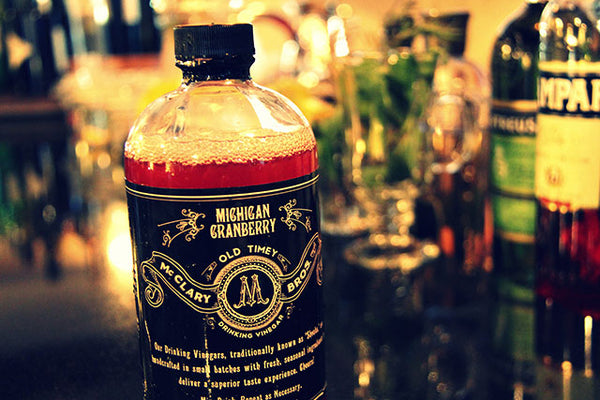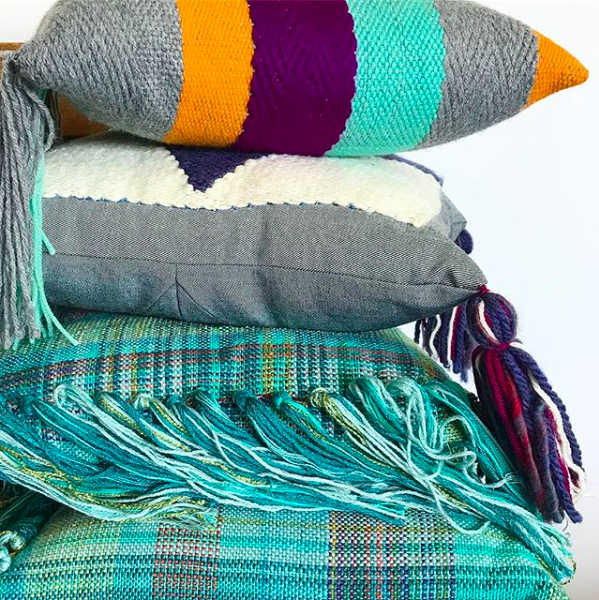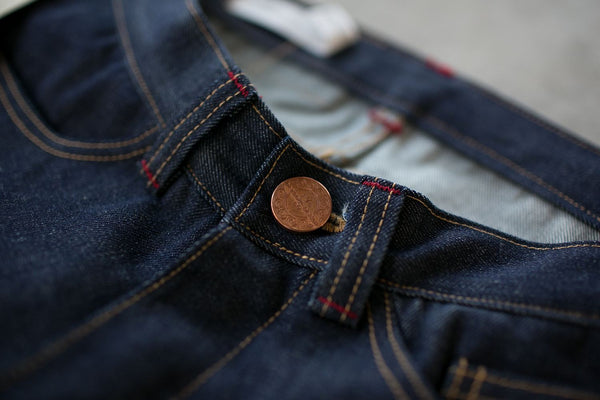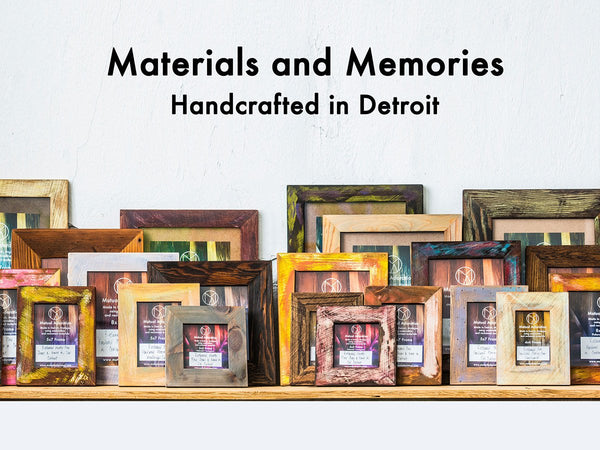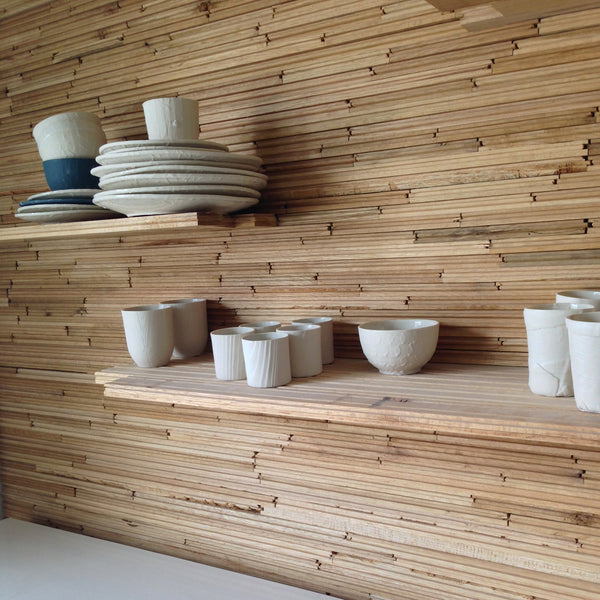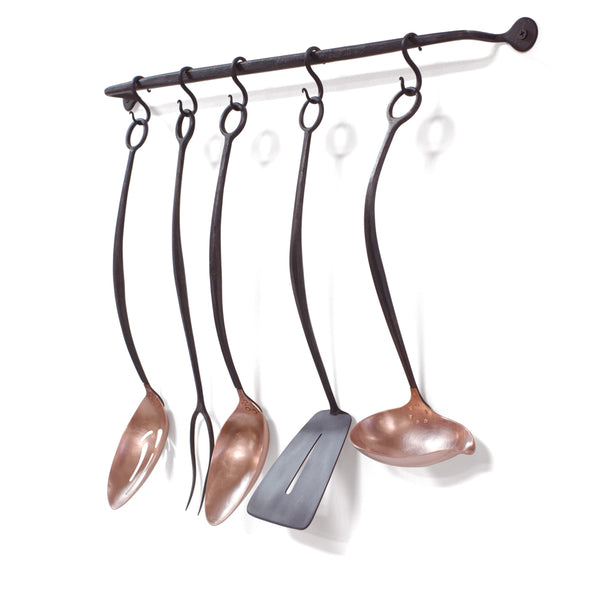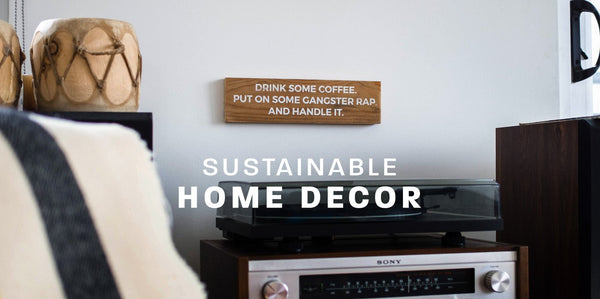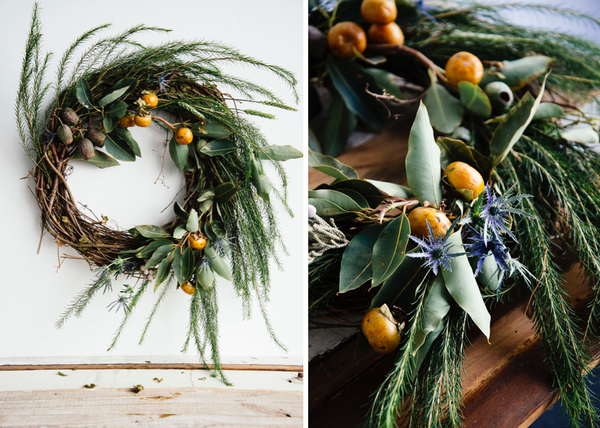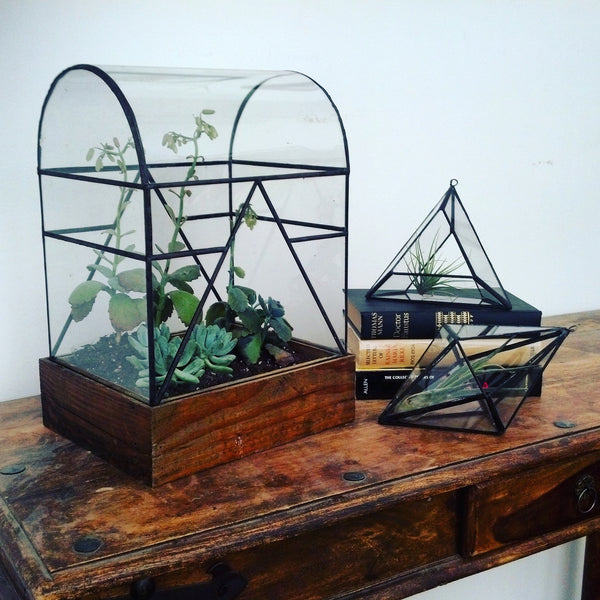The Ciseal Blog

Fixer-Uppers for First Time Home Buyers
Photo credit by Pixabay
For first time homebuyers, the high cost of a mortgage can be daunting. If you’ve been out looking at properties, you may have realized that you cannot have your dream home in your ideal location.
But what if you could? You may be able to have the perfect home in the right location if you are willing to invest in a fixer-upper. Here’s what you need to know.
What You Will Need
Buying a home that is not picture perfect will save you money, but you must try to make a sound investment. You want to make sure that the house does not have structural damage that will end up costing you more than you saved.
Here are some questions you should ask yourself first:
- Do you have a strong relationship? According to this article from BobVila.com, renovations and home buying can put a strain on a relationship, especially a new marriage.
- Do you have any DIY skills? While it’s perfectly fine to contract all your work out, it might actually cost you more than you’ll save. Don’t invest in a fixer-upper unless you have both the skill and time to do the minor updates, like painting and landscaping.
- Do you have the right tools? A fixer-upper may come with some unforeseen “small” issues to fix, so you should have the right tools for each project, such as drills, sanders, jigsaws, etc.
Lifehacker has more advice on what to look out for when choosing your fixer-upper property.
Budgeting for Your Home
First-time homebuyers have plenty of planning before getting a mortgage. Start by learning your credit score to determine the range of your loan approval. Get an idea of your budget by totaling up all your income and assets. Then, deduct your monthly expenses. Now, consider how much upfront budget you have for down payment, closing costs, lawyers’ fees, and moving costs.
Remember, if your house is larger than where you now live, your monthly utility bills may be higher. You may have homeowner association fees, and you will have regular maintenance costs. If this sounds daunting, read this post from Trulia to make sure you are ready to buy a home.
Finally, it’s wise to get an idea of local home prices. Homes for sale in Troy, MI have a median listing price of $350,000. Consider how much extra you’ll need beyond your mortgage for updates and renovations.
Remember, you can’t add the cost of major renovations into a standard mortgage. You can only get a loan for your home’s worth. According to Interest.com, there are two programs available that may be able to help: Federal Housing Administration's 203(k) mortgage and Fannie Mae's HomeStyle Renovation mortgage. Each has different requirements, so read the article to discover if you qualify.
If you don’t have immediate repair needs and are shy on budget, you can save up for them as you go along. But beware: Older homes can have more problems. This writer at Apartment Therapy shares how the budget she saved from buying a fixer-upper went right back into basic repairs directly after moving in.
Tackling Repairs
Prioritize repair projects by what needs to be done to make the space livable and what can be done after you move in. For example, outdoor work and renovations in spare or duplicate rooms (like bathrooms) can be done while you are there.
Think about seasonal needs too. For example, if winter is approaching, make sure your home has working heat and adequately sealed doors and windows. Do major renovations and any structural work, such as roofing, before you move in if possible. Finally, design elements, like paint and details, should be done last.
Buying a fixer-upper for your first home can seem daunting. However, with proper planning and a realistic budget, you can build your dream home and save money along the way.
This article was written by Bret Engle from DIYguys.net. If you're interested in learning more about how to do your own home repairs and updates, be sure to check out their site. They have a wealth of knowledge in their blog. Thanks, Bret!

10 House Plants to Brighten Up Your Home this Winter
With winter in full swing here in Michigan, and that means more time indoors snuggling with the pups. In fact, we currently have about 12 inches on the ground here, and I feel like It’s going to be a while before we see any green leafy things outside. If you’re in the same boat, tide yourself over during these seemingly lifeless winter months with some house plants. They’re quiet, relatively inexpensive, require minimal maintenance, have been shown to reduce stress, and they even clean the air for you - I wish my dogs could do all that! Here are 10 of my favorite house plants for brightening up your home on a dreary day plus some tips for keeping them alive throughout the winter months and beyond.
Fiddle Leaf Fig
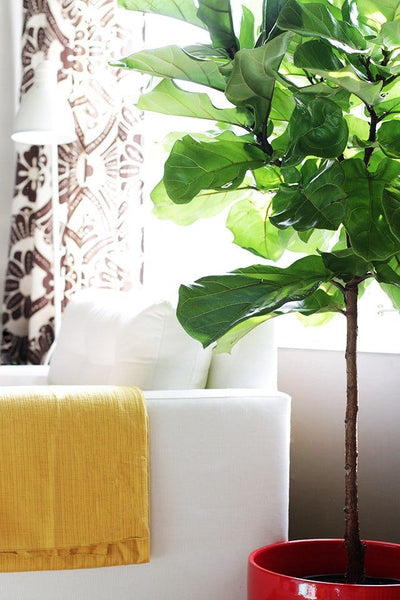
Perhaps possessing the most beautiful, lush leaves on this list, the Fiddle Leaf Fig is certainly a photogenic plant. It starts out as a bush, but can grow into a lush tree (a small one - don’t worry) if trained properly. Fiddle Leaf Figs enjoy bright indirect light, moderate amounts of water, and an occasional leaf dusting to keep it looking sharp. This is a relatively forgiving plant, so it’s great for beginner plant parents.
Spider Plant
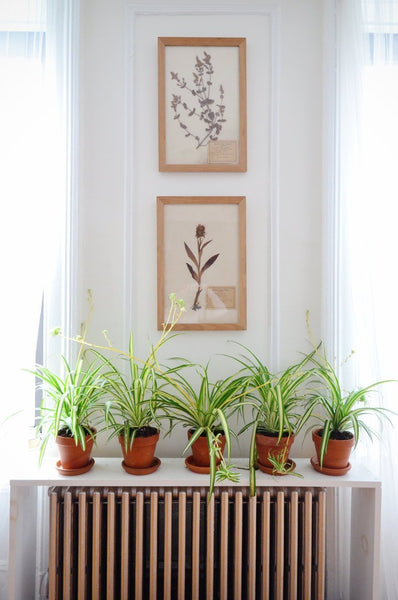
Spider plants are great air purifiers plus they’re super easy to take care of. It prefers bright indirect light, and moderate amounts of water. Watch the leaf tips - if they start to brown, then try watering with some collected rainwater (or melted snow) because they can be sensitive to the added fluoride in tap water. A pro tip for cat owners - the Spider Plant is non-toxic and harmless, but it is mildly hallucinogenic to cats.
Snake Plant
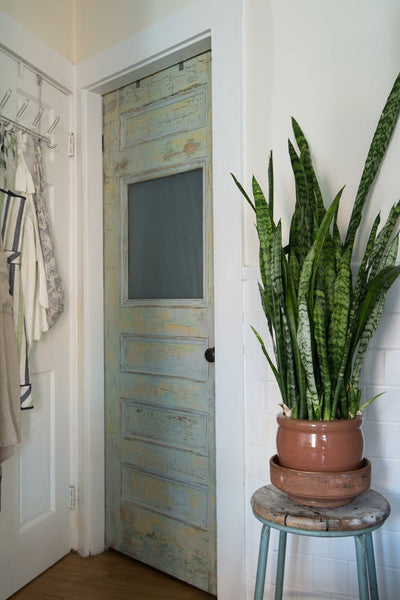
The Snake Plant has beautiful, tall leaves and it loves all kinds of light conditions - low, bright, indirect, fluorescent, all of the lights! It requires very little water, so it’s perfect for the forgetful plant owner. It is awesome at converting CO2 to O2, so if you’re in the market for an air purifying powerhouse, this is the plant for you.
English Ivy
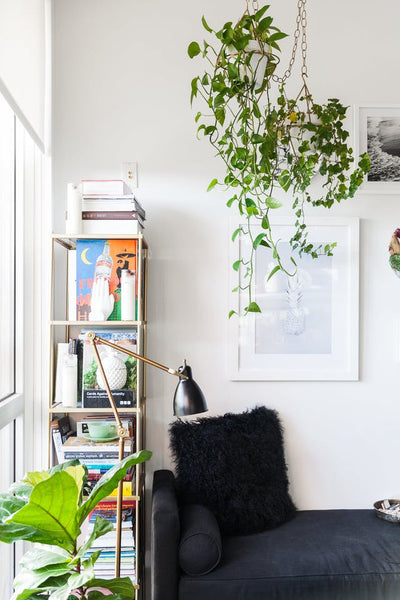
English Ivy has very distinctly shaped leaves that look lovely as they hang down from higher perches. It is a very forgiving plant which prefers drier soil, so make sure the top of the soil is dry before watering. It’s a fan of all kinds of light and won’t mind an occasional cold draft (how very English), which makes it one of our favorite winter pick-me-ups.
Peace Lily
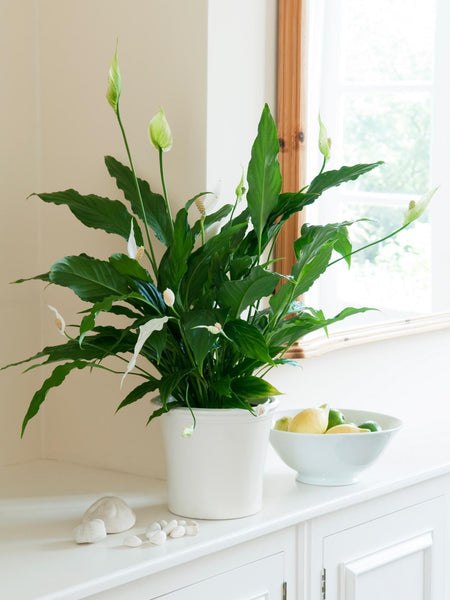
The Peace Lily is a very popular house plant because of its gorgeous flowers, beautiful foliage, and superior air cleaning abilities. If you’re a fan of low maintenance and forgiveness, then the Peace Lily is the house plant for you. Peace Lilies will droop when they want water, so you never have to wonder if it’s thirsty or not. It loves the gamut of light qualities from low to bright, but is not a fan of direct light. Just keep your Lily away from windows and you’re golden.
Rubber Plant
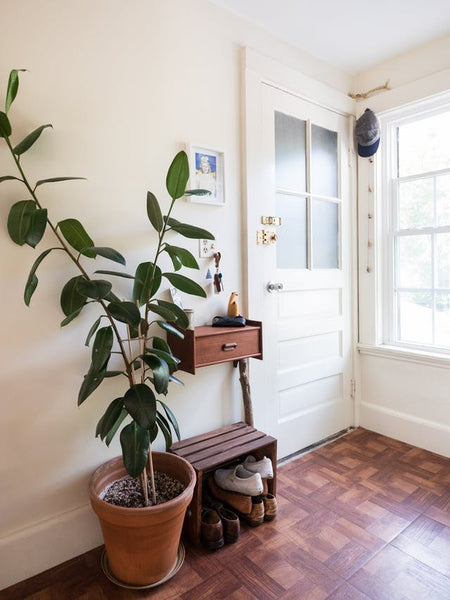
Rubber Plants have big, green leaves that add a lush freshness to your winter home. Like most houseplants, Rubber Plants like moderate watering and bright indirect light. It’s a nice and easy plant to care for, and other than an occasional dusting of it’s leaves, it’s happy just to be inside brightening your home.
Weeping Fig
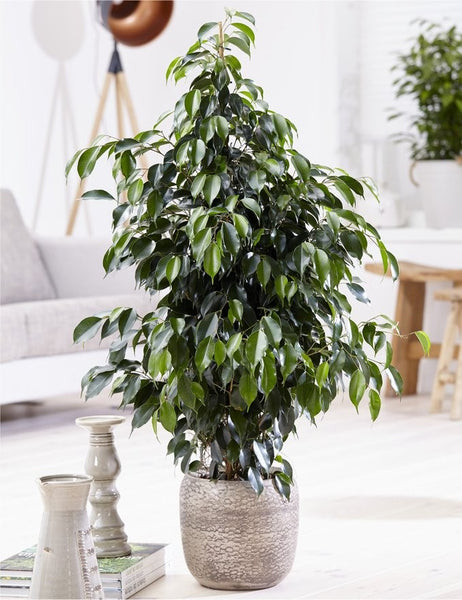
If you keep your home at about the same temperature all of the time, year-round, then the Weeping Fig is your best plant friend. This plant does not like change - don’t change the temperature too much, and don’t move it around your home and you’ve got a happy camper in the Weeping Fig. It likes bright indirect light and moderate water.
Bird of Paradise
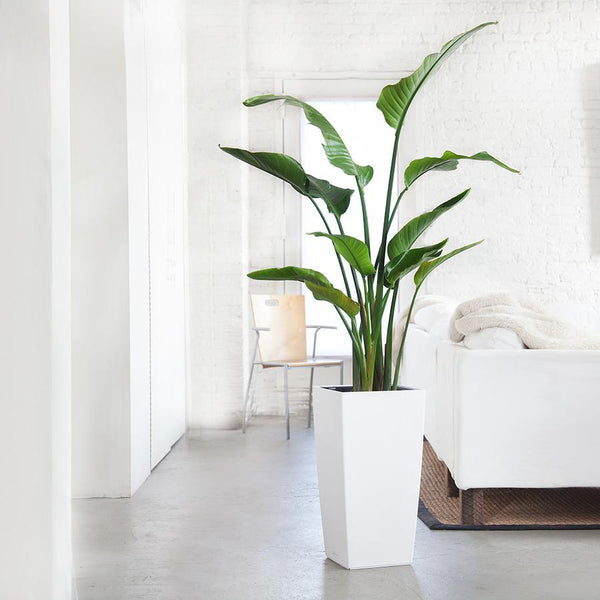
As far as flowering house plants go, the Bird of Paradise is one of the most beautiful. Year round, it rewards you with lush foliage, but it really puts on a show when it blooms. Bright light is what this plant lives for, so don’t hide it away in a corner. It goes somewhat dormant in winter, so it requires less water than in the summer months when it drinks up plenty of water. This plant can grow to over 5 feet tall in the right pot and conditions, so make sure you have the space or are prudent with trimming.
Boston Fern
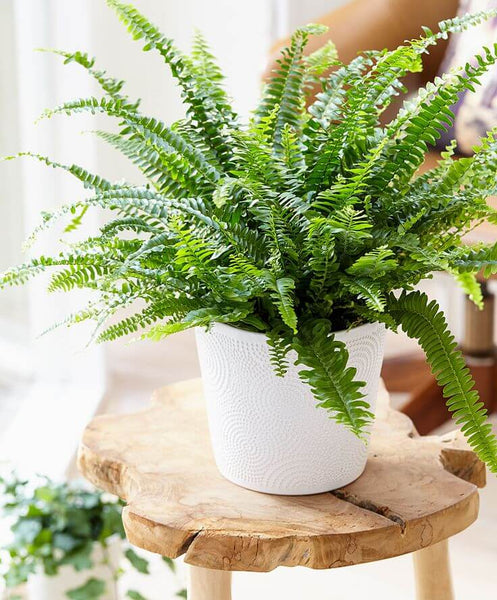
The Boston Fern loves a humid environment, but don’t let that deter your in the winter months. A bit of misting from a spray bottle will keep this plant happy through the drier months, and be sure to keep the soil moist. It will tell you it needs more humidity when it’s leaves begin to yellow. It grows best in bright, indirect light.
Jade Plant
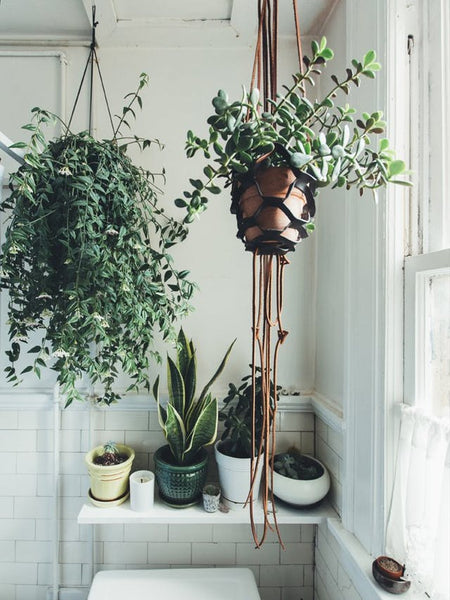
And for those of you who just can’t seem to keep anything green alive, the Jade Plant is for you. Jade Plants are succulents - meaning they thrive on very little water. They are dormant in the winter, so you can let their soil get pretty dry in between waterings. In the summer time it will require more water. Their leaves will let you know if they need more water - full, glossy leaves are happily watered. If the leaves start to spot or begin to fall off, then you need to water the plant a bit more. In spite of the little water they need, Jade Plants manage to grow as happy-looking, cheery house plants.
Now, a lot of house plants are moderately toxic to pets, so if you have furry friends you need to train them to stay away from the plants or keep the plants out of reach. For the more stubborn or slow-to-learn pets, stick to only non-toxic plants like the Boston Fern and Spider Plant.
As a general rule for most house plants, they like bright indirect light. Most of the plants on this list require moderate water which means watering 1-2 times per week depending on the plant, how much you water at one time, and the relative humidity in your home. I like to set a reminder on my phone for once every week to keep me on top of my plant watering. If you’re not sure if it’s time to water yet, stick your finger in the soil about one inch deep. If it’s dry then give it some water, if it’s still moist, then hold off on the water for now. Another indication of when or how much to water is the plant’s leaves - if they turn yellow or brown it’s due to under or over watering. If you’re ever in doubt about a symptom or need more info on when to trim, fertilize, re-pot, or anything else, just google your plant’s species and you’ll find plenty of help.

10 of Our Favorite Mid Mod-Inspired Christmas Gifts
Giving a gift for someone's home can be tricky. You really have to know the person and their style. Fortunately, it's easy to spot a Midcentury Modernist. Their home is a carefully curated collection of functional pieces with clean lines, warm woods, shiny metals, and pops of bright colors. If you have a Midcentury Modernist on your list, here are 10 of our favorite gifts to give (and receive!):
Making Midcentury Modern by Christopher Kennedy
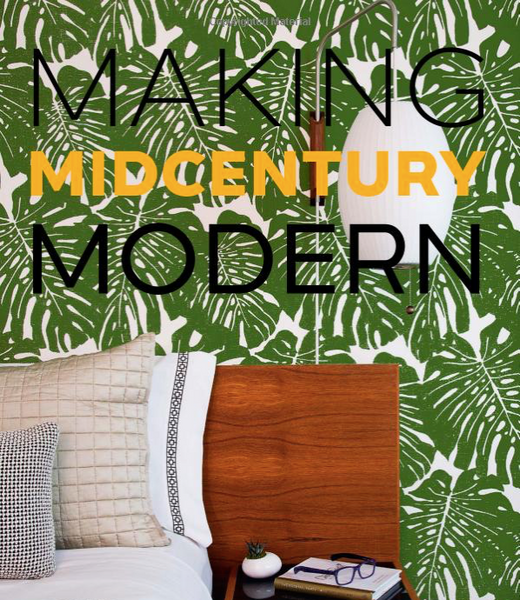
I love giving an receiving books as gifts - especially beautiful books that inspire me to change things up a bit and try new things. Making Midcentury Modern is a gorgeous book filled with beautifully styled Midcentury inspiration. It’s perfect for the Midcentury fan who doesn’t exactly live in their Midcentury dream home yet, but who loves to add some Midcentury style to their home anyway. The ideas in the book are fresh with a thoroughly modern take on Midcentury's design principles.
Travel Posters by Charley Harper for the National Park Service

A great graphic print with bright colors and geometric shapes add a midcentury twist to a gallery wall or stand-alone as a statement piece. These travel posters for the National Park Service by the famed illustrator Charley Harper are geometric, bright, and incredibly detailed. These posters are the last of the original stock, so they will sell out!
Coasters by Ciseal
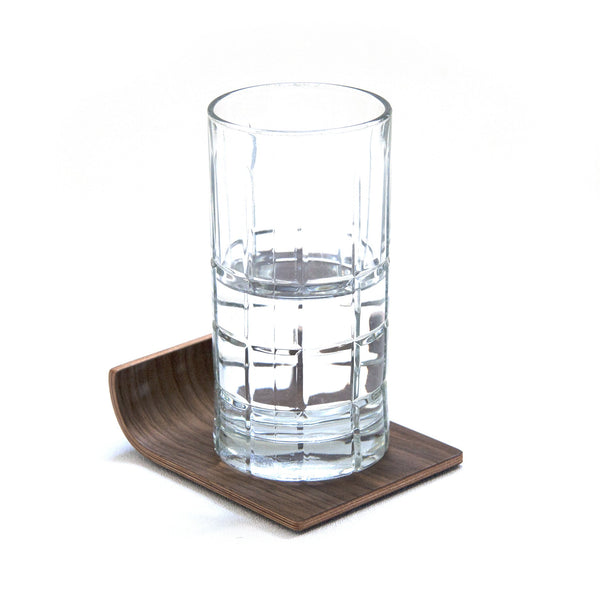
If your Midcentury modern giftee takes good care of their well-curated furniture, they’re going to want some classy coasters to protect their fantastic furniture finds. This set of four coasters adds a classic Mod bent plywood flair to any room - Midcentury or not.
Wake Mug by Samantha Nichols
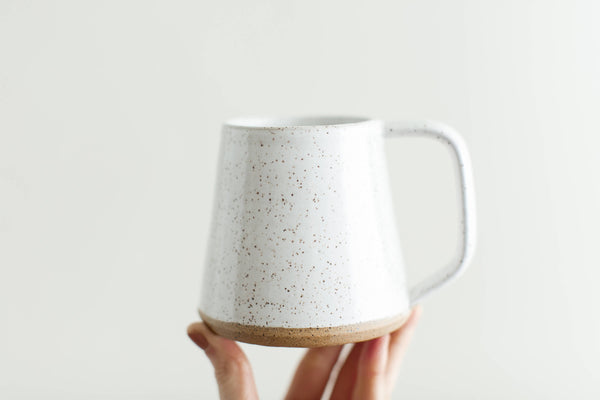
Who doesn’t look forward to a deliberately slow morning? Slowly sipping on coffee or tea, reading a much loved book, snuggling with the dog…there’s nothing better. Mid-Century style is keen on intentional, simple, beautifully restrained home goods, and this mug exhibits those qualities perfectly. It’s the one they’re going to reach for on those easy Sunday mornings.
Starburst Clock by George Nelson for Vitra
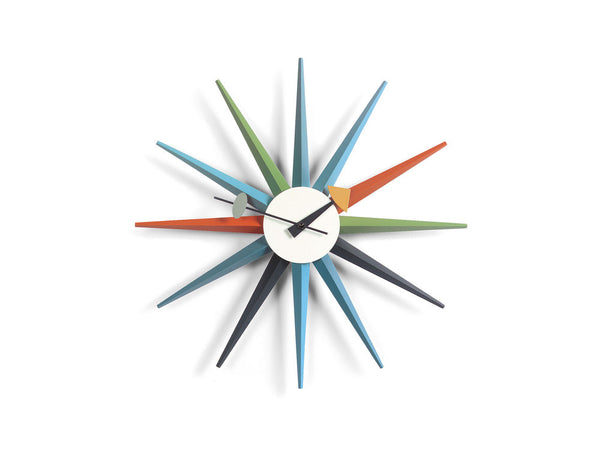
George Nelson’s famous starburst clock designs are a welcome addition to any Mid Century space. Not only are they practical, but the bright colors, earthy wood tones, shiny metals, and geometric shapes add that fun Midcentury vibe to any room.
Pineapple Cocktail Shaker by W+P Design
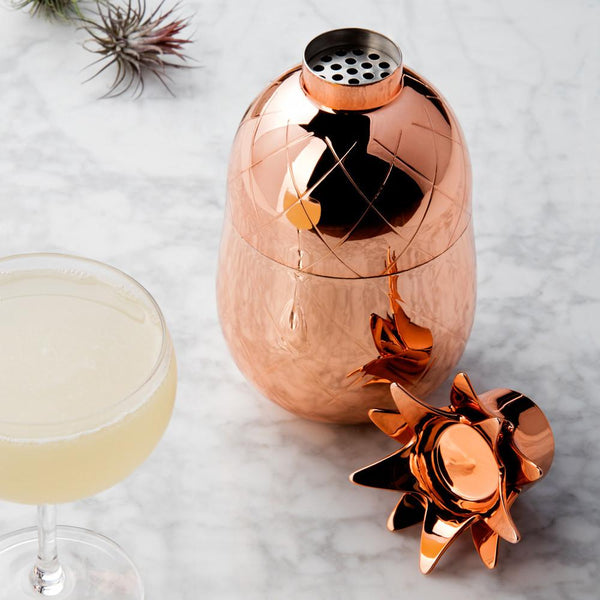
Midcentury style and cocktails are a match made in heaven. The Mod bar isn’t complete until it has a signature cocktail shaker, and this pineapple shaker by W+P Design is where it’s at. It’s a smart and stylish addition to the home bartender’s tool kit.
Graphic Print Throw Pillows by Alexander Girard for Vitra
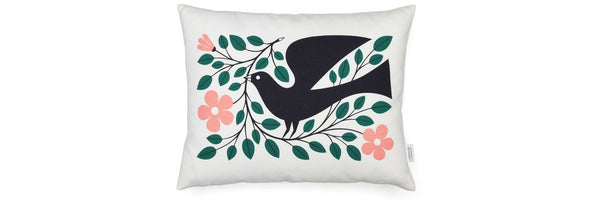
Midcentury style thrives on a mix of patterns and textures. Add that comfortable, chic, and eclectic vibe with one or more of these pillows with Alexander Girard’s bright and graphic designs.
Quilt by Haptic Lab
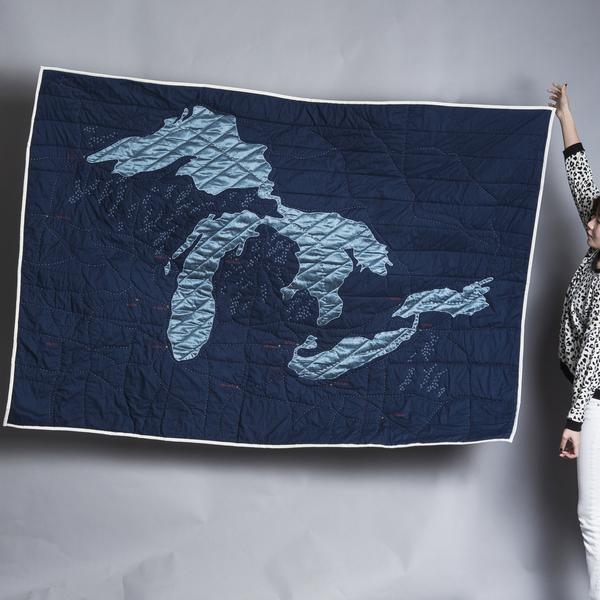
Winter nights require a cozy bright throw to warm up with a snuggle. This throw by Haptic Lab is the perfect gift for those Great Lakes Midcentury Modern fans.
Traverse Table Lamp by Ciseal
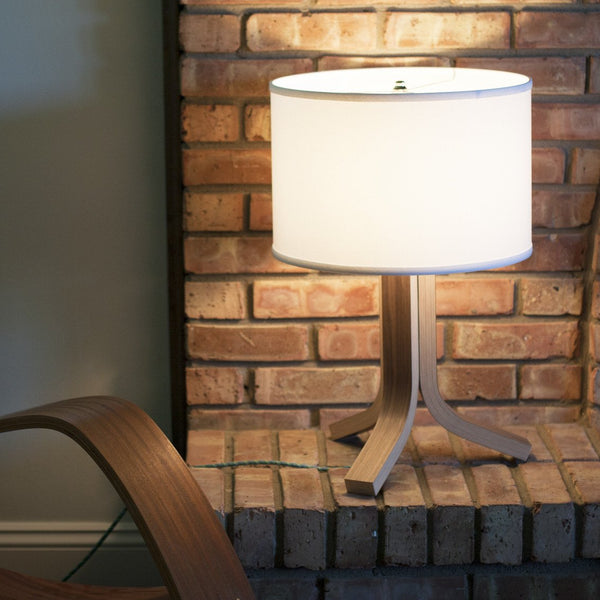
Brighten their decor with a mid-century style table lamp. This distinctly Midcentury tripod table lamp adds an extra glow to any corner of the home.
The Runwell Turntable by Shinola
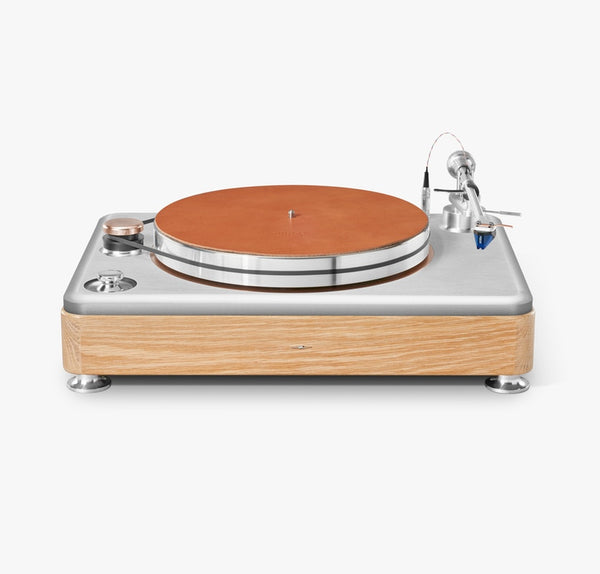
You can’t get much more Midcentury than an evening listening to records. This modern turntable by Shinola adds a bit of sleek style with the classic combo of wood and metal. Add a couple of favorite albums and you have everything needed to create a cozy, relaxing evening.

Made in Michigan: 10 Designers & Makers for Hand Crafted Gifts
In case you missed it, mass-produced, ubiquitous gifts are completely passé nowadays. Hand crafted, small-batch, sustainable and reclaimed are the new ideals. So, steer away from the superstore aisles or gift card kiosks and give an intentional and memorable gift that’ll be treasured for years to come. This gift guide isn’t simply a checklist of things to click on and buy - it’s an invitation to get to know the people who passionately make their products by hand. Put some wonder and whimsy back into the holiday season with these 10 shops who hand craft their beautiful goods right here in Michigan.
McClary Bros.
Drinking Vinegars, more commonly referred to as "Shrubs," are a Colonial-era drink mixer that are seeing a resurgence. McClary Bros. vinegars are hand-crafted in small- and micro-batches to showcase the fresh flavors of the season. The result is a refreshing, exciting mixer that’s perfect in a cocktail or shrub soda. Their Detroit Fig Leaf, Michigan Beet & Carrot, and Michigan Saskatoon are Ciseal’s favorites.
Electric Pink Crafts
We partnered with Julia of Electric Pink Crafts at the Renegade Craft Show in Detroit this year, and could not have been more impressed. Electric Pink creates pillows, rugs, blankets, and table runners in deeply hued, vibrant colors and patterns. Check them out if you’re looking for a unique, expertly hand crafted textile.
Detroit Denim
Detroit Denim jeans are like no other. They use US-sourced selvedge denim to create jeans that are of impeccable quality. Each pair is made entirely by hand out of the finest quality components. Their shop also includes aprons, totes, and belts, so you’re sure to find the perfect gift.
Mutual Adoration
All of Mutual Adoration’s goods are handmade using reclaimed wood from Detroit. Their picture frames, mirrors, trays and coasters all contain a bit of Detroit history. They’re the perfect gift for the discerning Detroiter on your list.
Abigail Murray Studio
Abigail Murray creates simple, utilitarian forms with complex surfaces of found and created textures. She explores ideas of pattern, layering and light referencing the repetition and precision of technology while delighting in the subtle imperfections of the entirely handmade. Her clean and modern bowls, cups, and vases will no doubt become those special pieces that put a smile on your face every time you use them.
Smithshop
Smithshop is known for it’s functional and ornamental metalwork—from fine goldsmithing to architectural ironwork. Everything they make is handmade in Detroit by a team of internationally recognized metalsmiths. Their shop includes everything from gorgeous bottle openers to elegant jewelry and supremely useful spatulas.
Woodward Throwbacks
Woodward Throwbacks creates all of their products out of materials that are gathered from illegal dumping sites around the city of Detroit. They keep the materials as organic as possible by simply sanding the splinters and keeping its natural form. The beauty is in the imperfection. Ciseal’s tip: the dogs in your life will adore their dog bowls!
Made Floral
Made Floral’s flower arrangements are spellbindingly gorgeous. There’s both variety and restraint in each bouquet which makes you just want to stare at them into infinity. Each of Martha's arrangements are hand crafted and natural, with the full intention of someone or something special.
LeadHead Glass
LeadHead Glass specializes in handcrafted terrariums made from reclaimed glass from deconstructed homes in Detroit. Their terrariums are modeled after 19th Century Wardien Cases which were originally used to transport exotic plants around the world. They’re the perfect environment to raise a mini garden in.
Ciseal
At Ciseal, each one of our products starts out as thin, flexible pieces of wood. After applying glue to each of these layers, we press them to shape in a mold. What comes out of the molds are modern, clean-lined products with the inherent warmth of wood. Our shop includes home decor and desk top products, table lamps and furniture that’ll add a little mid century modern vibe to your life.

9 Gifts for the Modernist Host(ess)
Can you smell that? It’s the delicious aroma of bread pudding, mulled wine, and chestnuts roasting over an open fire. All of that wonderfulness only means one thing - the holidays are approaching! Aren’t you excited for all of the Thanksgiving and Christmas parties on your calendar? I for one am looking forward to all of the delicious food and drinks and the festively decorated homes. Part of the fun for me when getting ready for the holiday season is hunting for the perfect host or hostess gifts. The least I can do is arrive at a party with a delightful gift in tow that says “thank you very much!” long after the dishes are clean and the party winds down. It’s easy to assume that a modern design fan with a clutter-free home wouldn’t want more things, but these nine gifts are sure to delight all but the most stringent minimalist.
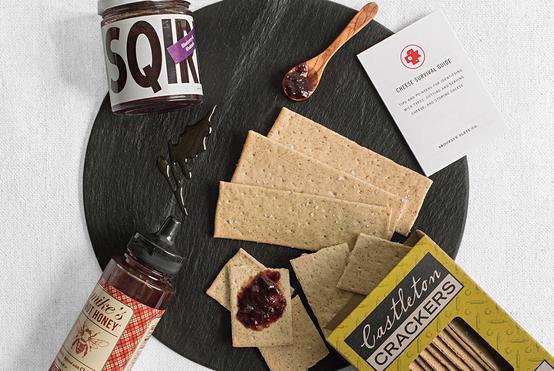
Just Add Cheese Set by Brooklyn Slate
Your dinner party host(ess) is going to love these cheese accoutrements. The set includes a fabulous slate cheese board, crackers, jam, honey, and Brooklyn Slate’s Cheese Survival Guide with all of their best tips on tasting, serving, and storing cheese. All they have to do is add their favorite cheeses and they’re good to go!

Host by W&P Design
There are so many great ideas in Host that your favorite host(ess) won’t be able to wait to invite you over again. The book includes both food and drink recipes that are unique yet approachable, and the advice for creating memorable get togethers is spot on.
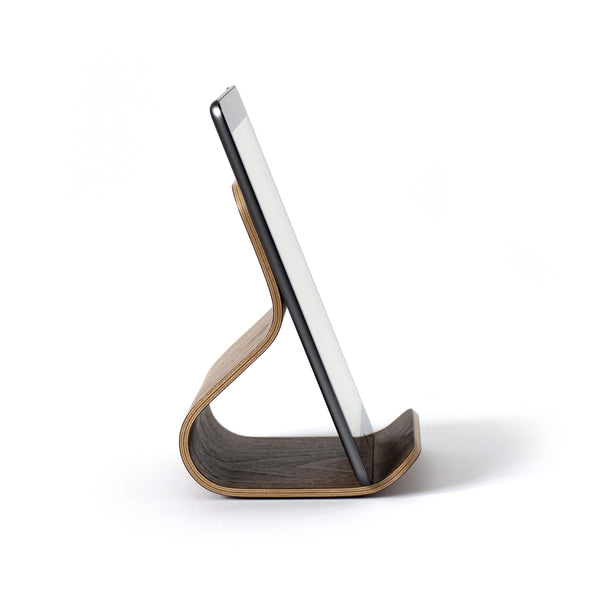
Ray iPad Stand by Ciseal
Make sure your favorite home cook has the perfect view of their recipe by giving them a Ray iPad stand. This clean and modern form-follows-function stand holds an iPad or cookbook at just the right angle so no ingredient or step is missed.

Bauhaus 500 Piece Puzzle by Dovetail
The Bauhaus was the most influential modernist art school of the 20th century and this puzzle will make any modernist-loving host or hostess’ eyes light up. After the stress of a dinner party, they’ll relish in the chance to unplug, relax, and put this puzzle together.
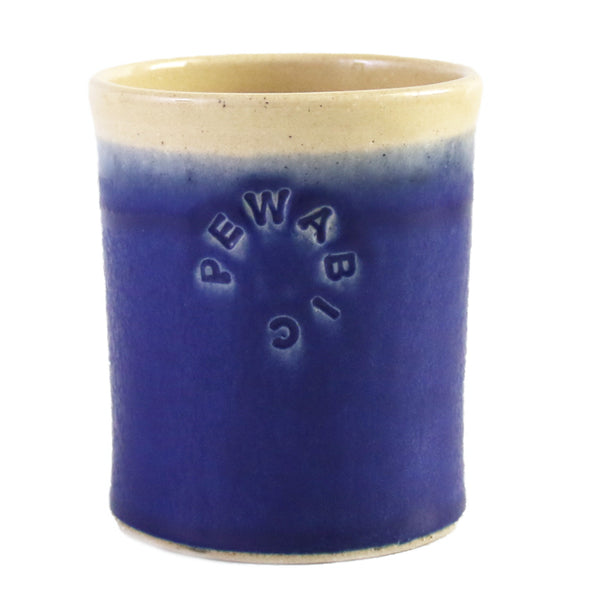
Rocks Cup by Pewabic Pottery
The handmade movement is going strong, and the hand wheel thrown Rocks Cup is sure to become a favorite for its one-of-a-kind charm. These cups are perfect for testing new cocktail recipes or tried-and-true favorites.
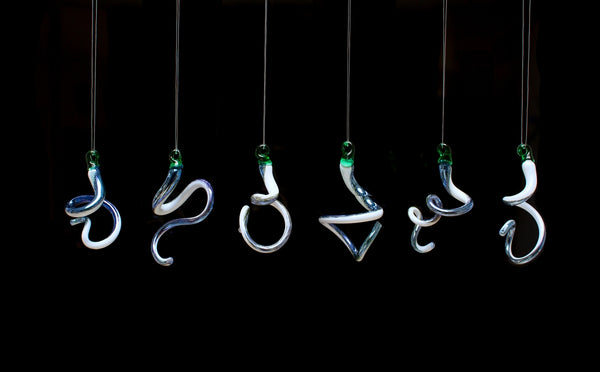
Curly Fry Ornament by Epiphany Glass
You can’t go wrong with Christmas ornaments - especially when they’re this gorgeous! The modern, whimsical shapes of these ornaments are completely unique because they’re made by hand.
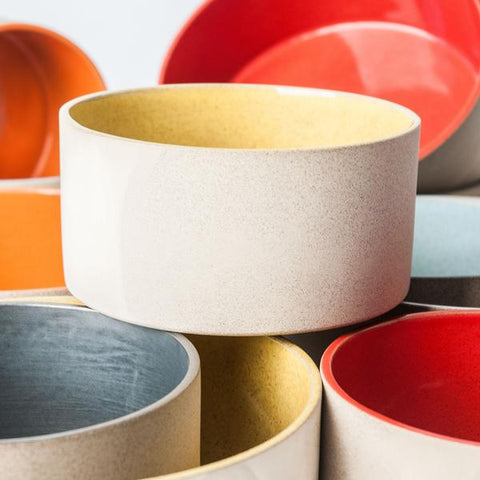
Utilita Bowls by J Schatz
These straight-sided bowls are simple in form, but that pop of color on the inside makes them a modernist’s go-to for everything. They are great for literally everything in the kitchen - prep work, baking, Cookie Crisp indulgences, etc.
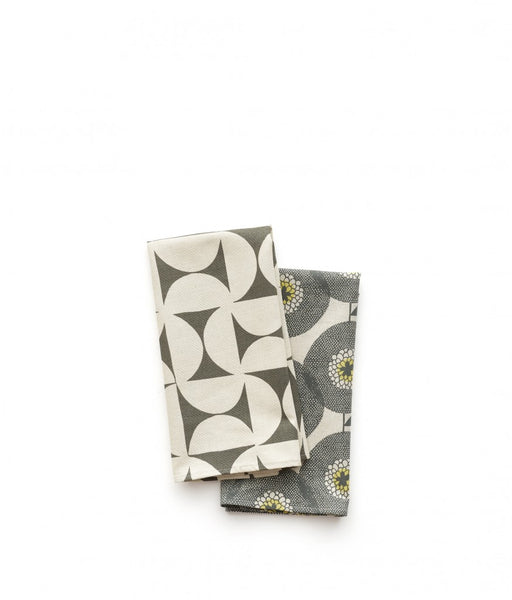
Skinny laMinx Tea Towels by Heath Ceramics
One can never have too many tea towels. They’re used for just about everything in the kitchen. These modern, eye catching patterns add a retro vibe that modernist hosts and hostesses love.
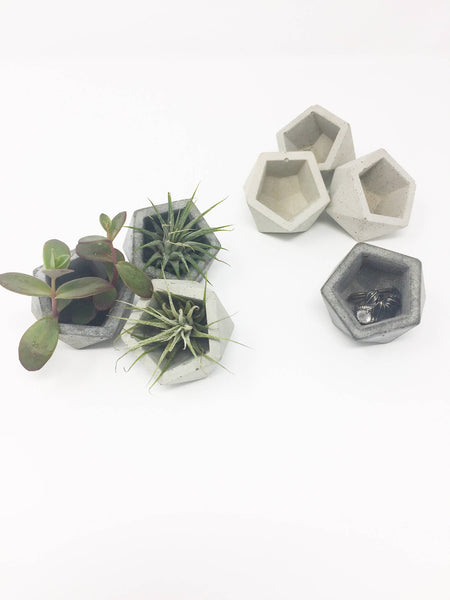
Geometric Concrete Planters by Mona Does Concrete
Plants add life to a room, and they’re especially appreciated in the cold winter months. These tabletop planters come in fun geometric shapes, and they are small enough to go anywhere.

Slow Design: It’s Worth the Wait to Create the Home You Really Want
Photo by Timothy Buck on Unsplash
Whether it’s for a tiny New York City studio apartment or a 4,000 square foot McMansion in the far off suburbs, everybody needs furniture in their home. Purchasing furniture is a rite of passage for every adult. Today, the majority of us - at least in America - buy furniture from massive chain stores. It's quick, easy, and they always have something that will work, right? But when's the last time you stopped to think about where that fast and cheap furniture comes from? How is it made, by whom, and from what materials? These are questions the slow food movement has urged us to ask about the food we eat. Isn't it time we give the same consideration to the objects that make our house a home?
Slow Food started in Italy as a response to the first McDonalds restaurant opening in Rome. It emphasizes the mindful use of local ingredients harvested and prepared in a socially and environmentally responsible way. Most of all, it encourages presence of mind in the creation and consumption of food in order to counteract the frenetic pace and anonymity of 21st-century life. As Slow Food gains popularity, people increasingly support their friends and neighbors who operate locally-owned farms and restaurants. Natural, wholesome ingredients and hand-crafted preparation bring the focus back to the colors, flavors, and textures that fuel our bodies and the community, conversation, and present state of mind that fuel our souls.

Photo by David Hellmann on Unsplash
The Slow Food credo “Good, Clean, and Fair” has slowly begun to expand past the farmer’s market and kitchen and into other areas of our lives like fashion and home decor. It’s super easy these days to mindlessly purchase a new sofa with a few swipes and clicks and have it delivered in two days with free shipping. However, Slow Design is gaining traction as consumers are focusing on process, origin, and materials in ways that value the environment and the makers. If the Slow Design movement is something you’re ready to get behind, keep reading to learn five guiding principles that will help you make more mindful decisions about the items in your home.
Take it Slow
So often, we’re urged to buy on impulse with weekly clearance sales and buy-it-now buttons. The sense of urgency that many stores create leads to a lot of unplanned purchases, and it can be difficult to remember that shopping has a responsibility attached to it. It’s important to carefully think about what you’re purchasing and where it will go in your home. Think five years down the road, too. In the moment, we don’t usually worry about whether that super cool throw pillow will still be on our couch or in the landfill in five years. If you take it slow while shopping for your home and even make a plan and stick to it, you can love what you have more and reduce waste down the road.
Focus on Handmade

Photo by Ian Schneider on Unsplash
The main tenant of Slow Design is to consider all aspects of the product - from the raw materials to the people and processes that make the final product. Another important tenant is to buy locally. These two tenants work hand-in-hand to protect our natural resources, improve the environment, and support talented artisans. When you buy from a local artisan, you can easily learn more about the materials and processes that go into the piece. If you’re a fan of online shopping, there are ways to make sure your purchase supports handmade, too. Sites like Etsy make it easy to shop handmade by location, and you can message the maker directly to learn more about their process.
Multi-Functional, Expandable, and Modular is Smart

Photo by Justin Schüler on Unsplash
One of the main principles of Slow Design is adaptability. Having fewer items that do multiple things is way more sustainable and wastes less material than having one item for each task. To add some flexibility to your home, choose furniture items that can be modified to meet future needs like a crib that reconfigures into a twin-sized bed or a shelving unit that can accommodate added storage when your needs or space expands. Or choose pieces that adapt to different needs - like a dining stool that you can move into the living room for extra game night seating (see our Tahquamenon Stool) or a coffee table tray that also looks fantastic as a holiday centerpiece on your dining table (like our Aspen Magazine Rack).
Make Sure it's Sustainable
Slow Design makers pride themselves on the sustainable materials and processes that they make their goods with. Sustainably harvested wood products, certified by the Forest Stewardship Council, are a great first step. In fact, all of the veneers and plywoods we use at Ciseal to make our products are FSC Certified. Another way to maximize sustainability is to choose furniture and home decor pieces that will last lifetimes. Quality materials and workmanship will ensure pieces will stand the test of time and hold up to daily use. And finally, be sure you really love the pieces you’re buying. Purchase things that you will want to keep for many years, rather than things you will want to replace in six months. When you keep your quality furniture for longer, you slow down the cycle of unconscious consumerism that keeps buying and throwing away.
Decide That it’s an Ongoing Project

Photo by Kari Shea on Unsplash
We all know of someone who moved into a new place, furnished it within a month, and then realize their house doesn’t feel like home, so they continually discard and replace things in a never-ending cycle of mindless consumerism. Then there are those who see their home as an ongoing project that will never be complete. To cultivate a home that reflects you and your life instead of passing trends, be sure to take it slow. You will have empty space and blank walls (designers cleverly call it “negative space”), and that’s ok because you know that you’re leaving those areas open for treasures you have yet to discover. So give yourself permission to slow down and carefully consider the things that will truly make your house a home.

On Trend: Exposed Plywood
Exposed plywood walls are definitely not for the faint of heart. Even the biggest plywood fans (ahem, us!) can see the benefits of being prudent with the warm wood tones and grain patterns. Too much can feel like a cave, but with the right complements, exposed plywood looks fantastic! If your space has the clean lines and plenty of natural light to pull it off, we think the exposed plywood look can be gorgeous! Here are some ideas for how to make plywood look great.

The most important decision to make is the plywood variety or species. This determines the final look you’re going to get. If you’re after a bold, warm, wavy grain pattern with lots of contrast, rotary cut fir or pine are the way to go. Birch, ash, or maple plywood in a flat cut or plain slice cut will offer a lighter, cleaner, more uniform look.
After deciding on the look you want and the variety of wood, you will want to decide on the grade. Plywood grade ranges from A - the cleanest, easiest to finish, and most expensive, to D - which has lots of knots, and will require lots of sanding and layers of finish, but also least expensive. If your budget isn't too tight, you'll likely want to get Grade A or AB Sanded Plywood. It will save you a lot of time and effort sanding and finishing and pulling slivers out of your fingers. For the budget conscious, BC plywood is a solid choice because it is a lower price point and it has a sanded finish on one side.








How to Reinforce Your Upholstery When You Have a New Pet
Owning a pet can provide many benefits such as mental, emotional, and physical. Millions of people across the globe enjoy the ownership of a beloved fuzzy friend. Walking your dog, listening to your contented cat purr and enjoying the companionship of a pet adds a little light to your life. Pet-proofing your space can be exciting and fun. There are several things you might want to consider to protect your belongings and furniture as you step into pet ownership.
Upholstered Furniture
Upholstered furniture by far can suffer the most damage from a pet. Beds, chairs, and couches are among the most popular upholstered items that your pet will want to sit or lie down on. If you don’t want your pet on your furniture, it is best to teach them early on. If you are allowing your pet on any furniture, there are some protective measures and fabrics to consider that can make them more pet-friendly and yet provide some protective measures on your items to help make them last.
Fabrics such as indoor-outdoor fabrics are great because many of them are waterproof, or consider pleather/leather, microfiber, or canvas. Canvas slipcovers a great idea because they can be easily removed and washed. Microfiber is easy to clean, and hair can be brushed or vacuumed off easily. If you aren’t looking for new furniture, try some of these ideas to protect what you already have.
Upholstery Applications
An easy way to help protect your furniture is to use an application such as Scotchgard. These usually come in a spray can, and can be applied to most upholstered furniture. You may want to test a small area to see if it changes the color of your fabric. It provides a type of stain repellent, and it can also help repel water or any other liquids. You simply spray it on your furniture and wait for it to dry. Make sure to read the label to see if your type of furniture can be covered and if it is pet-friendly.
Slipcovers
Slipcovers are a stylish and convenient way to protect your furniture from pet damage. Slipcovers come in different styles and many colors to suit your taste. Some simply tuck in around the edges and cushions as a sheet would, and others are heavier duty and can be laid over the furniture and then fastened with ties it has attached to it. Many slipcovers can be purchased that are water and stain proof and in a variety of materials. They can be easily removed and washed for a quick cleaning.
Repairs
Severe damage from bites or scratches to your upholstery can be fixed. You can take it to get the area reupholstered professionally, or you can do it yourself. There are many upholstery kits available online that can help you repair the area. Or, you can purchase patches that can be ironed on can be done for large fixes, and smaller holes can simply be sewn. If the damage is too obvious, a slipcover can help protect and prevent further damage.

Pets often don’t know the rules for furniture. If your items are damaged, your pet may suffer from separation anxiety while you’re gone. Try getting your pet its own soft bed, and keep their nails trimmed. Scotchgarding or covers are great ways to dissuade pets from chewing or scratching and can help protect your things while keeping your pet safe. You can also try toys to keep your pet occupied or gate off an area away from the furniture while you’re not home. Pets and furniture can coexist if training and some pre-planning are done.

A big thank you to Sarah Jones - the author of the Crazy Pet Guy blog for writing this post. Sarah has had problems in the past with training her pets. But by understanding what they need, she learned how to train them and care for them better. As dog lovers, we're big fans of Crazy Pet Guy. If you love your pet, be sure to check it out!

Modern with Soul: How to Make Modern Welcoming
The most common objection I hear about modern design is that it’s too sterile, cold, and soul-less. It breaks my heart because that couldn’t be further from the truth. The feel of a modern room that’s done right is relaxed, refreshing, and welcoming. To achieve that easy, livable feel, check out these tips for creating a welcoming modern space.
Simplicity
The first tenant to modern design is to declutter. Too much stuff creates an anxious feel to a room, so don’t follow through on the urge to add more things. One focal point - like a couch - and then some secondary chairs and a coffee table are all you need, really. Keep the lines of your bigger pieces clean and resist the urge to add layers of pillows, piles of knickknacks, or tufted everything. Just go with what’s necessary and you’re golden.

Photo: Nielsen:Schuh Architects
Space
Modern is family friendly! Modern open layouts encourage families to gather together and actually communicate with each other with spoken words instead of texts. To achieve this openness in any space, avoid furniture that makes the room feel smaller than it is - like over-sized couches or high-backed chairs. A smaller-than-desired room can be opened up by judiciously using clean-lined furniture and lighter colors.

Photo: Mapos
Warmth & Comfort
It’s easy to assume that a simple and open space will be cold and stiff, but that’s not the case. Textural rugs, soft pillows and throws add a warmth that makes it easy to cuddle with the dog and binge on Netflix. Warm wood tones and lush, green plants add a natural element that will make the room even more inviting.

Photo: Amy Hilliker Klebitz
Color
Bold, bright colors are where modern design kicks it’s shoes off and has it’s fun. Color helps people to relax in a room, so don’t be afraid of a few bright pillows here and there. The more colors the better! As long as the colors you choose have the same tone, they will work together - trust me.

Photo: Baxter Design Group

5 Tips to Make Your Small Space Live Larger
It seems like wide open floor plans are everywhere you look these days. They’re perfect for entertaining and keeping an eye on the family, right? But what about those of us who can’t simply take a sledgehammer to our walls and create a wide open spacious living space? Never fear - landlords, structure, and budget issues don’t have to get you down about your small enclosed rooms any longer. Here are 5 tips to make your small space feel grand.
A Bold Focal Point
In a small space you’re working with a clearly defined limit - the walls. Everything within those walls will naturally compete for attention with each other. One way to make the small space feel more expansive, interesting, and dynamic is to create a bold focal point. Your focal point could be an architectural feature like a fireplace or picture window or you could create one with a bold, bright couch. Once you have your one focal point, resist the urge to add any more bold pieces to your small space. They will only create a dissonance that will make the space feel even more enclosed.
Furniture That Fits
Today more than ever there is so many furniture options available for small spaces. Sometimes referred to as apartment-sized furniture, these couches and chairs are just as stylish and comfortable as their bigger brothers, but sized just a bit smaller so they don’t overwhelm smaller rooms.
Cut the Clutter
Small space veterans know to keep the knick knacks to a minimum to minimize the visual clutter, but lets take it a step further - what else can you remove? In a small dining area, backless stools or a bench instead of dining chairs will help the space feel more open. Smaller living rooms can be both clear of clutter and the life of the party if you’re doing it right. Folding chairs and stools that can be packed away when the party’s over are a small entertaining space’s lifeblood. By the way, if you’re looking for some fabulous stools for dining or packing away, be sure to check out our Tahquamenon and Interlochen stools. They’re so choice.
Have Some Fun
I know I said earlier to keep the focal points to one, but that doesn’t mean your tiny space can’t have any more fun. Subtlety is definitely key, but adding interesting details in the form of wall art, throw pillows, blankets or a dynamic rug make the space more playful and distract from the room’s smaller size.
Accessorize with Glass
Glass is a small space’s best friend. Windows and glass doors open to the expanse of nature outside and create the illusion of a larger space inside. In the absence of huge windows or doors, even adding glass art pieces will help open up a small space. Because light passes through glass, these pieces won’t add as much visual weight as other objects in the room.

Perfect Pairs: Our Favorite Mid Century & Ciseal Combinations
Here at Ciseal, we are constantly inspired by Mid Century design. Each product we design and make has a Midcentury bent to it because we’re huge fans of the clean lines, natural materials, and useful elegance of so many of the classic Midcentury designs. The best part is when we hear from customers that they’re going to pair one of our products with one of their cherished mid century pieces. Here are some combos our customers have created that perfectly pair Ciseal products with classic Mid Mod pieces.
Ray iPad Stand & Nelson Swag Leg Desk

Nelson Swag Leg Desk Photo by DWR
From the elegant swag legs up to the colorful dividers, the Nelson Swag Leg Desk is the perfect pair for the elegantly functional Ray iPad Stand. We don’t blame you if your Ray takes up permanent residence on this classic mid century desk. Learn more about the Ray iPad Stand in our shop.
Aspen Magazine Rack & Noguchi Table

Noguchi Table Photo by DWR
It’s so iconic that it’s almost too popular for it’s own good, but we can’t help but be in awe of the simple elegance of the Noguchi Table. Add the Aspen Magazine rack to keep that glass surface free from clutter and you’ve got yourself a perfect pairing. Learn more about the Aspen Magazine Rack in our shop.
Mission Firewood Holder & Wegner Shell Chair

Wagner Shell Chair Photo by DWR
The Wegner Shell Chair is sometimes called the “smile chair” for good reason - it certainly brings a smile to our bent ply obsessed faces whenever we see one. Our perfect pairing to this iconic chair is the Mission Firewood Holder which echoes the chair’s lightness, grace, and elegance. Learn more about the Mission Firewood Holder in our shop.
Traverse Table Lamp & Finn Juhl Credenza

Finn Juhl Credenza Photo by DWR
What Midcentury fan doesn’t love a pop of color? The Finn Juhl Credenza is one of our favorites precisely because it embraces all of the basic principles of mid century design: Clean lines, form follows function, natural materials, and just enough color to bring a smile to your face. Pair it with our Traverse Table Lamp for a perfect pairing of functional beauty. Learn more about the Traverse Table Lamp in our shop.
Michigan Left Table Lamp & Womb Chair

Womb Chair Photo by DWR
The Womb Chair’s enveloping form makes it one of the most perfect chairs to curl up in to peacefully read a book. Pair it with our Michigan Left Table Lamp to provide a warm light to those pages and you have yourself a relaxing Sunday afternoon. Learn more about the Michigan Left Table Lamp in our shop.
Tahquamenon Stool & Mid Century Desk Wall Unit

Wall Unit Photo by Old Brand New
Mid Century wall units are famed for their efficient use of space and endless configuration possibilities. The warm woods and clean lines bring a timeless elegance to what’s otherwise a fairly utilitarian purpose. Our Tahquamenon Stool is the perfect unobtrusive seat for when you need to sit down and go through the mail. Learn more about the Tahquamenon Stool in our shop.
Interlochen Stool & Eames Lounge Chair

Eames Lounge Chair Photo by CCI Renovations
Who doesn’t love themselves an Eames Lounge Chair? It’s iconic, gorgeous, and comfortable - a combo that’s not easy to achieve. The lovely curves of the Interlochen stool perfectly play off of the leather and molded plywood combo of the Eames lounge chair. Locate it near the entry for a useful seat to take off your shoes. Learn more about the Interlochen Stool in our shop.
Alden Table & The Jens Chair

Jens Chair Photo by DWR
The Jens Chair is a classic design that’s become a staple in many mid century and danish modern homes. It’s warm and inviting lines pair perfectly with the intersecting angles of our Alden Table. Learn more about the Alden Table in our shop.
Pontiac Table & Nelson Cigar Table Lamp

Table Lamp Photo by Modernica
George Nelson had a thing for clean and simple lamps that would go on to become icons. His lamps are elegant, yet durable enough for everyday use, and they perfectly pair with our clean and classic Pontiac Table. Learn more about the Pontiac Table in our shop.

5 Tips for Creating Those Cozy Sunken Living Room Feels
Photo: Bill Bocken Architecture & Interior Design
Sunken living rooms are a classic midcentury home feature that create a naturally cozy conversation area. Back in the day, they were where the adults enjoyed a pre-dinner cocktail and caught up on life and where the kids enjoyed story time before bed. When you’re in one of these conversation pits, it feels like an intimate, secluded space inside an otherwise wide open layout. But what can you do if your home doesn’t have a sunken living room? We’ve put together 5 tips for styling your living room to create the feel of an atomic ranch conversation pit - whether your home has a sunken living room or not.
Area Rug

Photo: AA Real Estate Photography
Starting from the ground up, look for a fantastic rug to create an area of focus in the room. Whether you have a sunken living room or not, an area rug that is large enough to touch each couch, chair, and table in your designated conversation area will tie each element together and create the cozy, intimate feel you crave. To dial up the Mid Century feels, look for a rug with bright colors and/or a geometric pattern.
Seating

Photo: Tara Bussema
When choosing the seating for your conversation pit, start with the largest piece - the sofa. When at the showroom, test out a few options to see how comfortable they all are. A fabulous-looking sofa that’s uncomfortable to sit on after a few minutes will not bode well for your conversations. Then choose an armchair or two depending on how much space your conversation area has - you don’t want it to be too full with big pieces. If space is an issue, smaller profile chairs like dining chairs can work and still be comfortable enough for a conversation space.
Coffee Table

Photo: North Design
Like seating, a coffee table is a must-have anchor in any proper sunken living room. The coffee table options are vast, so choose one that fits the mood you’d like to have in your conversation area. A table with a glass top, curved lines and abstract shapes will make a smaller room feel more open, while a wood-topped table with straight lines will be more of an anchoring element and help ground a larger space.
Bold Art

Photo: Andrew Sherman Photography
Make a statement with art that communicates the feel you want to have in the room. Do you want lively, fun, and exciting conversations? Then go with bright, bold art pieces like abstract paintings or a shiny chrome starburst light fixture. For a more relaxed, low-key feel, choose art pieces like landscape photographs or natural, handmade ceramic sculptures that communicate a laid-back vibe.
Natural Details

Photo: Kirsten Hepburn
Bringing in nature is a sure-fire way to add some detail to the room and create that finishing touch that will draw your guests wandering eyes into your carefully curated space. If you have a credenza or shelving in your conversation room, create a small display or two with some succulents, ceramic knick knacks, river rocks, or wooden sculptures. One of our favorite pieces is the Aspen Magazine Rack. It’s sweeping, nature-inspired shape brings just the right natural touch to any conversation area. Organic shapes and natural colors add just enough detail and contrast to bring the intimate feel all together.


